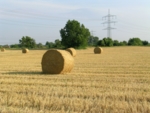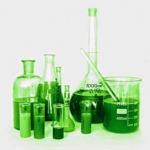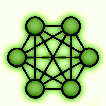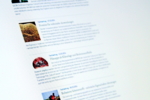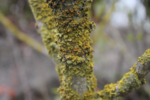Main navigation
Search Results
-
-
-
-
Database - 21/04/2016 https://www.biooekonomie-bw.de/en/databases/fundingFunding
-
Commitment for the future of the region https://www.biooekonomie-bw.de/en/bw/location/akteursplattform-biooekonomie-baden-wuerttemberg
Akteursplattform Bioökonomie Baden-Württemberg
-
-
-
-
-
-
-
-
-
Article - 10/01/2019 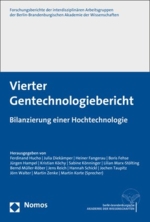
Stocktaking and recommendations for action: the BBAW’s fourth gene technology report
In the new gene technology report, the interdisciplinary working group of the Berlin-Brandenburg Academy of Sciences (BBAW) takes stock of gene technology developments in Germany during the past few decades, and discusses the societal, legal and ethical challenges associated with these technologies in the future. The report is highly topical due to the controversy surrounding the ruling of the European Court of Justice on CRISPR/Cas9 genome…
https://www.biooekonomie-bw.de/en/articles/news/stocktaking-and-recommendations-for-action-the-bbaws-fourth-gene-technology-report -
Article - 12/03/2019 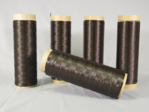
Biocarbon fibres made of lignin
Carbon fibre is increasingly found in airplanes, cars and wind turbines. Carbon fibre is still made from oil and relatively expensive. However, this is soon to change. Researchers from the German Institutes of Textile and Fibre Research in Denkendorf (DITF) are working on the development of cost-effective carbon fibre made of lignin, a by-product of papermaking.
https://www.biooekonomie-bw.de/en/articles/news/biocarbon-fibres-made-of-lignin -
Article - 11/02/2019 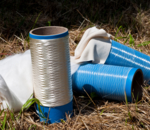
Natural biopolymers - the sustainable almost-all-rounders
Wood pulp as well as hemp and flax are renewable raw materials that can be processed into fibres of a new performance class using innovative technologies. They are environmentally friendly and help to solve waste problems. Products and processes for these fibres of the future are being developed at the DITF Denkendorf. They are suitable for textile and technical applications.
https://www.biooekonomie-bw.de/en/articles/news/natural-biopolymers-the-sustainable-almost-all-rounders -
-
-
-
-
-
-
Dossier - 23/09/2013 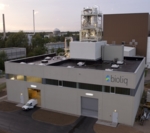
Bioeconomy a new model for industry and the economy
On the one hand, a bioeconomy relies on renewable resources to meet society’s need for food, energy and industrial products. On the other, it emphasises the role of biogenic material flows. The bioeconomy model is expected to reduce our dependency on fossil fuels in the long term. In order to implement the shift to a biobased economy on the regional level, the Baden-Württemberg government launched the Bioeconomy Research Strategy in summer 2013.
https://www.biooekonomie-bw.de/en/articles/dossiers/bioeconomy-a-new-model-for-industry-and-the-economy -
Article - 27/03/2019 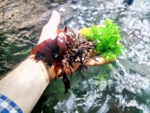
Residues from biogas plants as feed for algae
Algae are frugal organisms. They require only light, water, minerals and carbon dioxide to be able to produce biomass. These properties will now be exploited economically in a two-year research project. Dr. Stefan Sebök from the University of Hamburg plans to study the holistic utilisation of degradation products of a biogas plant in Wallerstädten by linking them to land-based algae cultivation.
https://www.biooekonomie-bw.de/en/articles/news/residues-from-biogas-plants-as-feed-for-algae -
Article - 21/03/2019 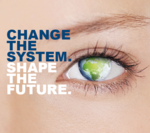
Education as the key to a successful transition into a bioeconomy
National and international policy papers emphasize the role of the education sector in the transition into a bioeconomy. On the practical level, various actors are working on programmes to prepare professionals for future challenges. The University of Hohenheim, for example, offers a bioeconomy master's programme and is one of the universities that have laid the cornerstone for the “European Bioeconomy University” consortium.
https://www.biooekonomie-bw.de/en/articles/news/bildung-als-schluessel-fuer-eine-erfolgreiche-biooekonomie-transformation -
Article - 27/05/2019 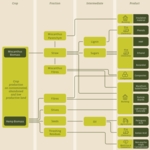
Providing Growledge - resources and products for the bioeconomy
Miscanthus and hemp are biomass plants that can be used as raw materials for a wide range of products and can be grown on land areas that are currently underutilised. A European consortium led by the University of Hohenheim in Baden-Württemberg has started a five-year project to demonstrate the economic potential of these plants.
https://www.biooekonomie-bw.de/en/articles/news/providing-growledge-resources-and-products-for-the-bioeconomy -
-
-
-
Dossier - 30/09/2014 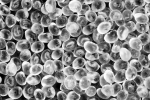
Industrial biotechnology a challenging change to the raw material base
Biogenic raw materials have never been as popular as they are now. Efforts to tap renewable carbon resources are already underway, despite the fact that new oil drilling technologies are boosting fossil fuel stockpiles. In the medium term, industry will have to expand its raw materials base, and in the long term it may have to renew it completely. Industrial biotechnology is one of the key technologies in the transition.
https://www.biooekonomie-bw.de/en/articles/dossiers/industrial-biotechnology-a-challenging-change-to-the-raw-material-base -
Dossier - 10/09/2012 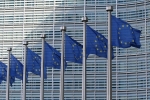
Horizon 2020 the EU framework programme for research and innovation a boost for top-level research in Europe
In the face of the ongoing financial crisis Europe is working on a new research strategy that is aimed at creating new economic growth and jobs. The new EU framework programme for research and innovation Horizon 2020 replaces the 7th Framework Programme FP7 and will run from 2014 with a budget of 80 billion. In July 2012 Brussels launched the final FP7 calls for proposals for 2013 that offer numerous market-based instruments designed to bridge…
https://www.biooekonomie-bw.de/en/articles/dossiers/horizon-2020-the-eu-framework-programme-for-research-and-innovation-a-boost-for-top-level-research-i -
Dossier - 20/03/2017 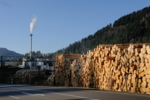
Lignin – a natural resource with huge potential
Petroleum is the raw material for basic chemicals. Growing demand and dwindling resources mean that the chemical industry is increasingly focusing on renewable resources. Lignin is a wood component that is proving to be a promising resource. It is currently almost exclusively used for generating energy, although it could also be used for other purposes. In Baden-Württemberg, a research consortium is specifically focused on exploring its…
https://www.biooekonomie-bw.de/en/articles/dossiers/lignin-a-natural-resource-with-huge-potential -
-
Dossier - 09/12/2013 
Industrial biotechnology biological resources for industrial processes
Industrial or white biotechnology uses microorganisms and enzymes to produce goods for industry, including chemicals, plastics, food, agricultural and pharmaceutical products and energy carriers. Renewable raw materials and increasingly also waste from agriculture and forestry are used for the manufacture of industrial goods.
https://www.biooekonomie-bw.de/en/articles/dossiers/industrial-biotechnology-biological-resources-for-industrial-processes -
Dossier - 16/12/2013 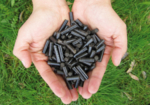
Microbial raw material recycling
While the use of biotechnological methods for the purification of water, soil and air has already been state of the art for quite a few years, the use of microorganisms for the recovery of metal and mineral raw materials from industrial and agricultural waste has also started to attract the interest of scientists. This dossier addresses this topic, explains what geobiotechnology and urban mining are all about.
https://www.biooekonomie-bw.de/en/articles/dossiers/microbial-raw-material-recycling -
Dossier - 14/05/2012 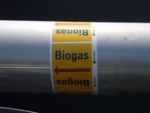
Biogas a promising source of renewable energy?
In addition to sunlight water and wind biogas is a regenerative source of energy that contributes to saving fossil resources. Germany is home to around 7100 biogas plants including 796 as of 2011 in Baden-Württemberg. In 2010 these facilities produced 11 per cent of the electricity generated from renewables in Germany. Energy-rich methane is the major constituent of biogas and is produced when organic compounds are broken down by bacteria in the…
https://www.biooekonomie-bw.de/en/articles/dossiers/biogas-a-promising-source-of-renewable-energy -
Dossier - 22/10/2012 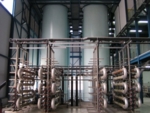
Environmental biotechnology
Biotechnologists are increasingly learning how to apply the knowledge about biological metabolic processes in the field of environmental protection including waste management and environmental rehabilitation. Environmental biotechnology is a field with great potential. In future bacteria and other microorganisms will most likely also contribute to sustainability and cost efficiency in other areas including the cosmetics and detergent industry as…
https://www.biooekonomie-bw.de/en/articles/dossiers/environmental-biotechnology -
Dossier - 08/07/2013 
Biodiversity in crisis
Biodiversity is essential for functioning, stable ecosystems and the wellbeing of the human race. Despite conventions, resolutions and action plans for the protection of biological diversity at all political levels, the decline of species diversity is increasing dramatically all over the world, including Germany. Targeted projects and funding measures have been put in place with the objective of stopping this deadly trend.
https://www.biooekonomie-bw.de/en/articles/dossiers/biodiversity-in-crisis -
Dossier - 09/04/2018 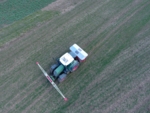
Digitisation in agriculture - from precision farming to farming 4.0
Automated steering systems, data-driven targeted application of fertilisers and pesticides, field robots and drones, soil analysis sensors, autonomous driving - digitisation is advancing in agriculture as elsewhere. The question asked by farmers and by society in general is whether the increasing adoption of digital technologies in agriculture is a curse or a blessing.
https://www.biooekonomie-bw.de/en/articles/dossiers/digitisation-in-agriculture-from-precision-farming-to-farming-40 -
Dossier - 15/04/2019 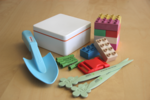
The alternative: “bioplastics”
Plastic waste takes years to decompose and pollutes the environment. Nevertheless, plastics are an indispensable part of everyday life. It is therefore all the more important to find a meaningful alternative that is sustainable, environmentally friendly and has better properties and more functionality than conventional plastics. In addition, such an alternative should not be dependent in any way on fossil resources.
https://www.biooekonomie-bw.de/en/articles/dossiers/the-alternative-bioplastics -
Dossier - 08/03/2018 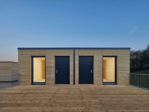
Building sustainably - actively protecting the climate
Using renewable and recycled raw materials, minimising the use of water and energy during construction works and subsequent operation of a building, conserving resources and protecting the environment while maintaining biodiversity are all important components of sustainable building construction.
https://www.biooekonomie-bw.de/en/articles/dossiers/building-sustainably-actively-protecting-the-climate -
Dossier - 04/03/2019 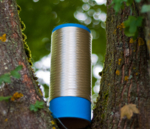
Sustainable textiles
Baden-Württemberg is known for innovation in textiles and for playing a decisive role in the development of sustainable textiles for the future both in the clothing and the booming technical textile sectors. Companies and research institutes are focused on making the entire textile value chain from raw materials, production and useful life to disposal more sustainable than ever before.
https://www.biooekonomie-bw.de/en/articles/dossiers/sustainable-textiles -
Article - 02/04/2019 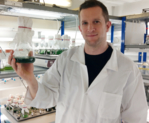
Simple sugar could soon compete with glyphosate
For many decades, glyphosate has been a common component of agricultural pesticides worldwide, although it is a controversial herbicide that may be harmful. The good news is that a more sustainable alternative is now in sight: researchers from the University of Tübingen have discovered a sugar molecule called 7-deoxy-sedoheptulose (7dSh) which inhibits the growth of plants and microorganisms, but appears to be completely harmless to human cells.
https://www.biooekonomie-bw.de/en/articles/news/simple-sugar-could-soon-compete-with-glyphosate -
-
-
-
-
Dossier - 01/10/2012 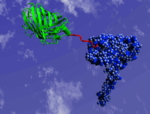
Systems biology understanding complex biological systems
Systems biology studies complex interactions within biological systems on the genome proteome and organelle level. Many techniques from the fields of systems theory and associated fields can be used to gain an understanding of the behaviour and biological mechanisms of cellular systems.
https://www.biooekonomie-bw.de/en/articles/dossiers/systems-biology-understanding-complex-biological-systems
